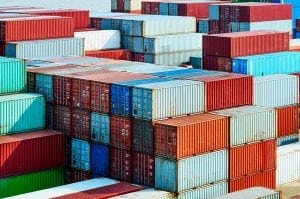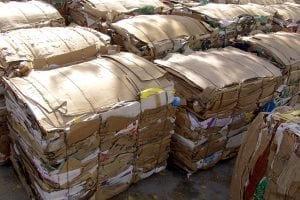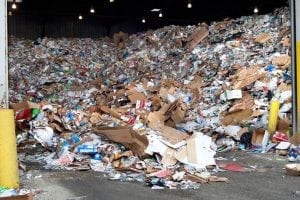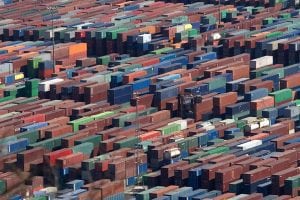 The Malaysian and Vietnamese governments have followed through on plans to clamp down on recycled material shipments. Both countries have stopped issuing new import permits for certain materials.
The Malaysian and Vietnamese governments have followed through on plans to clamp down on recycled material shipments. Both countries have stopped issuing new import permits for certain materials.

 The Malaysian and Vietnamese governments have followed through on plans to clamp down on recycled material shipments. Both countries have stopped issuing new import permits for certain materials.
The Malaysian and Vietnamese governments have followed through on plans to clamp down on recycled material shipments. Both countries have stopped issuing new import permits for certain materials.

The largest paper companies in China have announced temporary closures due to recovered fiber shortages, and Southeast Asian governments are taking steps to stem the skyrocketing volume of recyclables they’ve imported this year.

The Chinese government has released a proposal to completely ban imports of recovered fiber and every other form of “solid waste.”
 The U.S. will enact tariffs on $50 billion worth of Chinese products beginning July 6. Vowing retaliation, China released its own list of U.S. products to target in July.
The U.S. will enact tariffs on $50 billion worth of Chinese products beginning July 6. Vowing retaliation, China released its own list of U.S. products to target in July.
 The Chinese government has announced key policies in recent weeks, including a plan to ban all recovered material imports by 2020. In the U.S., Waste Management offered details on the impact of National Sword thus far.
The Chinese government has announced key policies in recent weeks, including a plan to ban all recovered material imports by 2020. In the U.S., Waste Management offered details on the impact of National Sword thus far.
 New pre-shipment inspection requirements for loads of scrap material bound for China are scheduled to begin this week, and one exporter says the change is going to be a costly disruption.
New pre-shipment inspection requirements for loads of scrap material bound for China are scheduled to begin this week, and one exporter says the change is going to be a costly disruption.
 Chinese officials have responded to concerns from other nations about recent import restrictions. The Chinese comments directly address the “waste versus scrap” debate as well as global economic repercussions of National Sword.
Chinese officials have responded to concerns from other nations about recent import restrictions. The Chinese comments directly address the “waste versus scrap” debate as well as global economic repercussions of National Sword.
 Many exporters of recovered materials have increased the volume they send to Southeast Asia this year in an effort to fill the void left by China.
Many exporters of recovered materials have increased the volume they send to Southeast Asia this year in an effort to fill the void left by China.
 Many developments related to the Chinese recycling import market have taken place in recent weeks. The following is a look at key updates.
Many developments related to the Chinese recycling import market have taken place in recent weeks. The following is a look at key updates.
